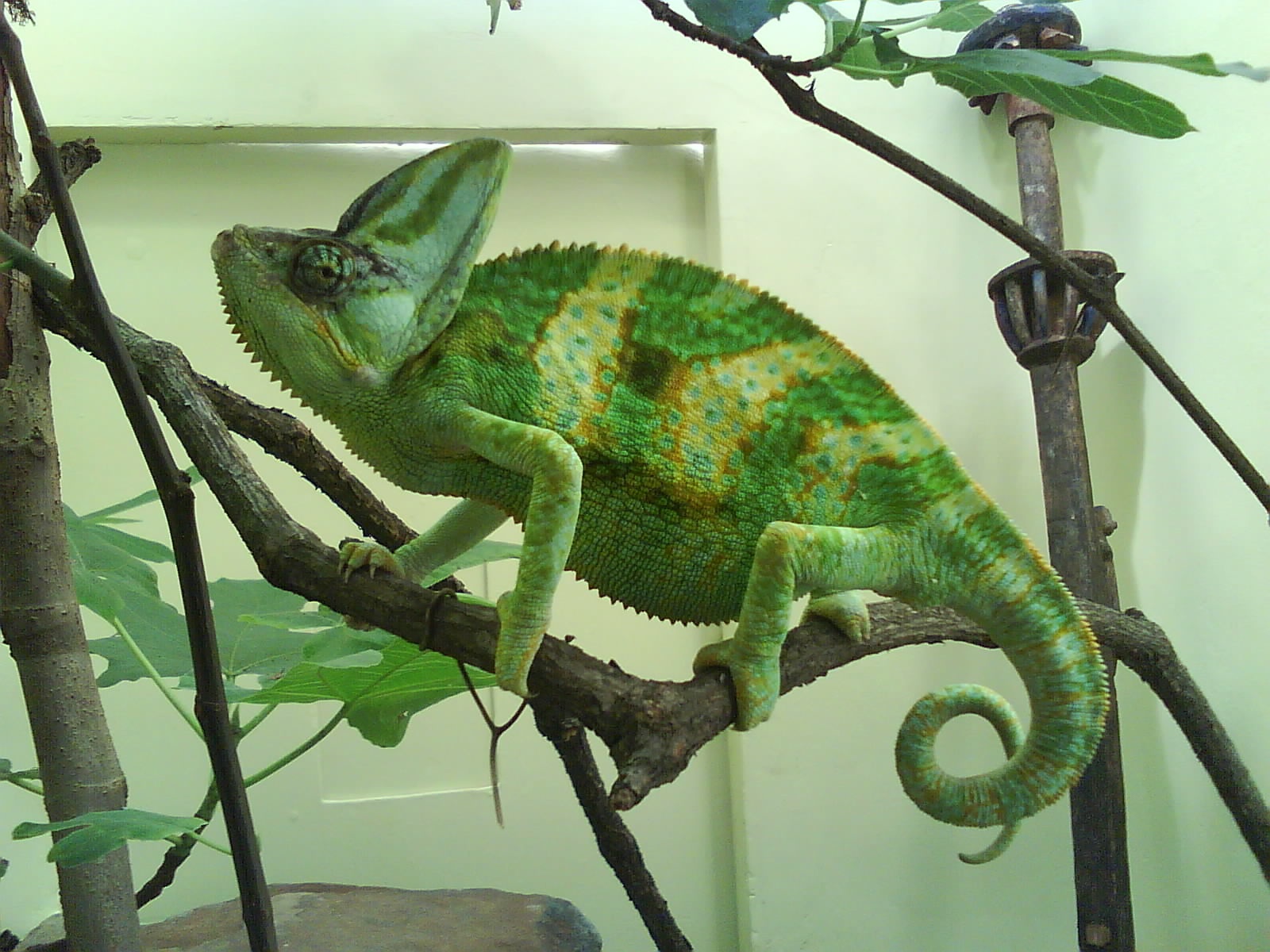Okay, I finally found a copy of the poem that was published in the (1967?)
Harvard Advocate that elicited the fateful fan letter from Larry that changed the course of my life. It was printed with a long footnote, which I include here. I remember that in Larry’s letter (which will be harder to find, but will appear here eventually), he suggested that I lose the footnote, but I love the last sentence, so am leaving it in, despite the grammatical error (do you see it?). In any case it’s more authentic this way.
I remember pacing the Radcliffe library one night trying to write a poem and stumbling on the volume of the Cambridge Natural History. Was it open on a desk? Feeling somewhat caged myself at the time, the captive chameleon seemed the perfect subject.

Image from the Markov Thought Chain Blog
Chameleons in Captivity[1]
Silent, they bide their time.
Turning brown or green as the mood suits them
they swing on a twig,
and steady themselves
with a flexible tail.
Until, when their prey flies by,
they slyly become the branch.
With one cool thwap of an eight-inch tongue
they get their meal,
no sentiment spared
for their breakfast or dinner.
They slit their eyes and sleep.
And yet in winter, they wander.
Restless, insatiate, refusing to eat.
Aloof, they hiss
and swell, swaying
in gold indignation
and bite their keeper’s hand.
They no longer care who feeds them.
Some urge, half forgotten, intrigues them despite
the warmth of their cage,
and they crave the dark
and solitary
cave, drawn back towards the earth.
And what strange joy they must feel
As they watch their iridescent skin
fade and peel
in the long months
of slow starvation.
What absolute power they hold
over the foolish keeper
who thinks to deny this swaggering beast—
when weary of summer
and the hoards
of beetles and flies—
the privilege of death.
Meryl Natchez
[1] From the Cambridge Natural History, Vol. III. Chameleons are notoriously difficult to keep successfully, whereby we do not mean keeping for three to six months. This is easy enough, since it takes them several months to die of starvation. The difficulty is to keep them through the winter. To enable them to do this, it is absolutely necessary to fatten them up during the summer and autumn. Otherwise, although kept in a warm place, they are liable to lose their appetite in autumn, when they become restless, probably with the desire to hibernate. Those few individual which get over this critical period, say during the month of October, and do not refuse food are probably safe. But those are doomed which refuse to eat meal-worms or cockroaches or such food as can be procured easily during the winter.


